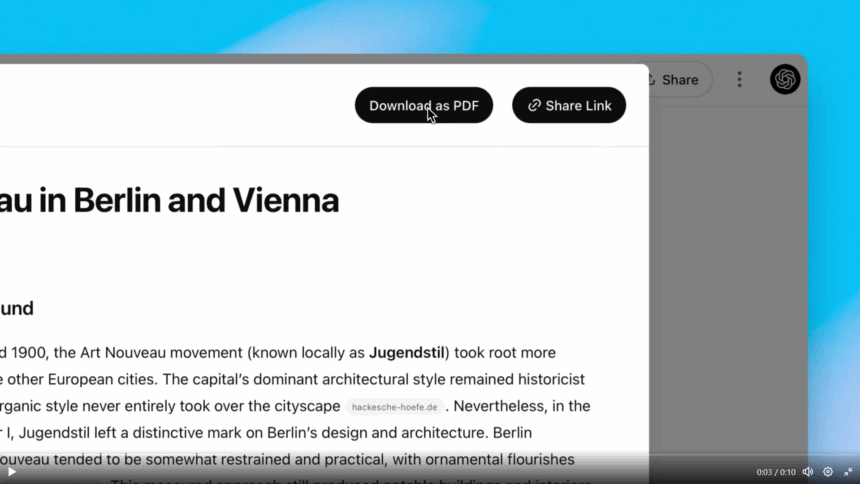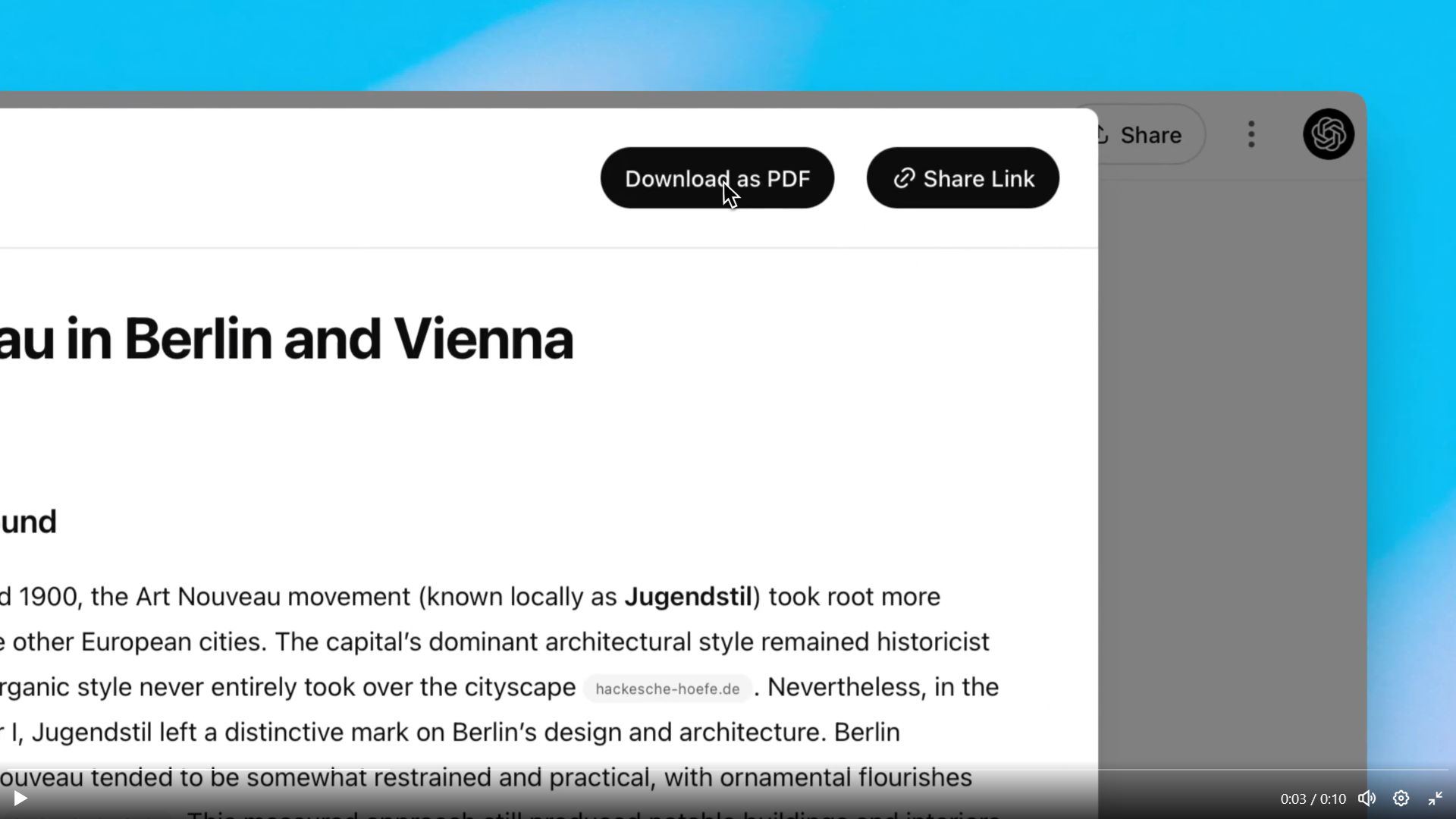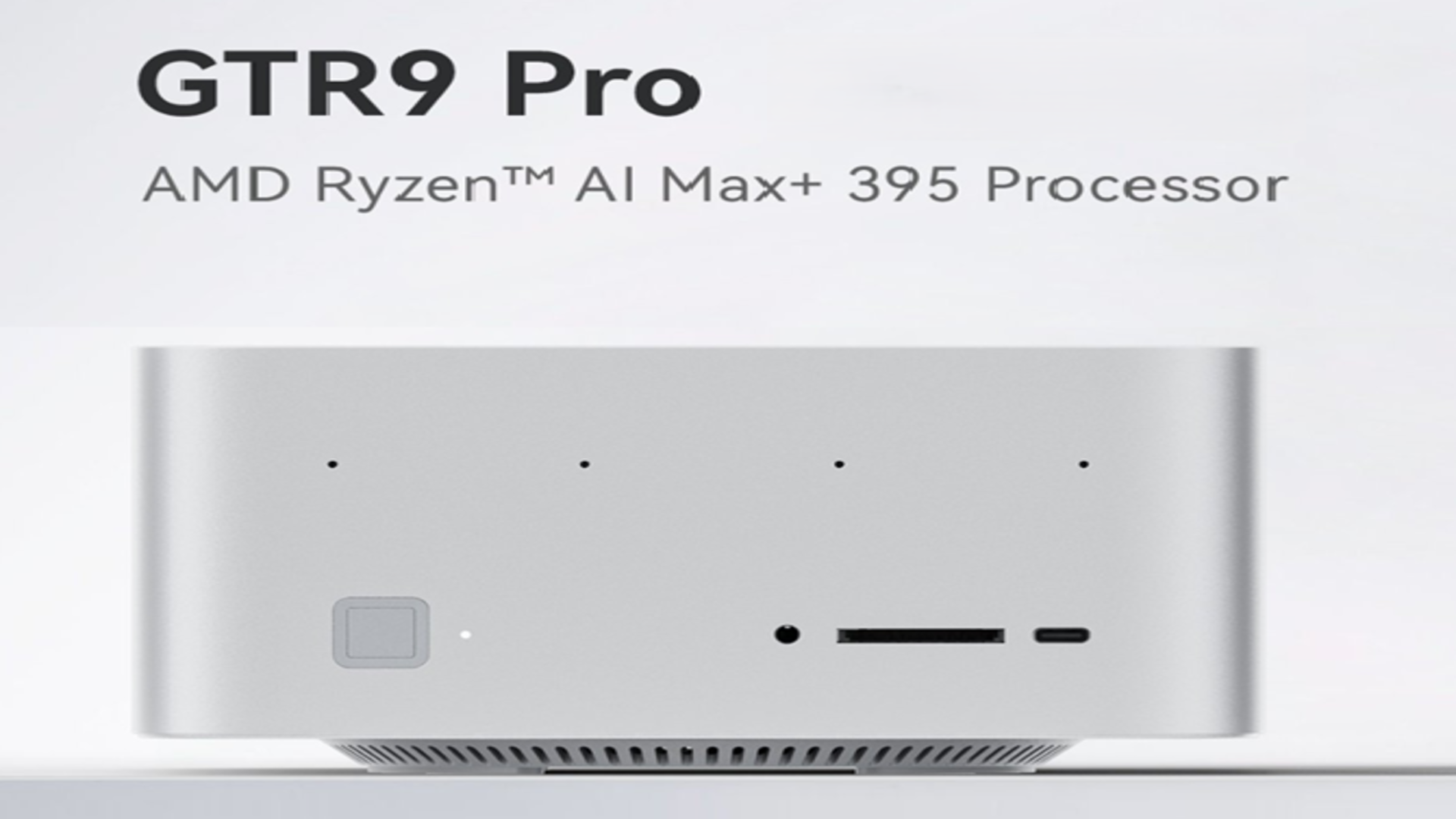- ChatGPT’s Deep Research feature now includes PDF export capabilities
- New PDFs come with tables, images, and citations
- This update simplifies the processes of sharing, archiving, and repurposing research
Having spent considerable time utilizing ChatGPT’s Deep Research feature for crafting engaging reports, I recently encountered a notable limitation—until an exciting update changed everything. OpenAI has introduced an option that allows users to export their research as well-formatted PDFs. No longer will I need to rely on screenshots or web links to share insights, such as those on the enigmatic Lake George monster.
This update, while seemingly small, addresses a significant gap in functionality that should have been provided from the start. Now, whether you’re creating a new Deep Research report or revisiting an archived one, just click the share icon at the top. Next to the familiar ‘share link’ option is a new ‘download as PDF’ feature. With a simple click, you can convert your report into a polished, citation-rich PDF that lands conveniently in your download folder.
At present, this exporting ability isn’t available to all users; it requires a subscription to ChatGPT Plus, Team, or Pro. Unfortunately, those using the Enterprise or Education versions will have to wait, though OpenAI has promised improvements are forthcoming, which bodes well for students and professionals eager to leverage Deep Research.
Deep PDF
You can now export your deep research reports as well-formatted PDFs—complete with tables, images, linked citations, and sources. Just click the share icon and select ‘Download as PDF.’ It works for both new and past reports. pic.twitter.com/kecIR4tEneMay 12, 2025
This new feature significantly enhances how users can interact with their research outputs. Whether it’s for incorporating the PDFs into other projects, sharing them with peers, or just attaching them to an email for a friendly bet, the potential uses seem endless.
While it may revolve around merely adding a PDF download button, this improvement closes a frustrating gap in the overall experience of using ChatGPT. Now, researchers can archive their insights more efficiently, collaborate seamlessly, or even—as I have attempted—upload the PDFs to another AI tool for enhanced functionality.
Indeed, I experimented by feeding the PDF into Google’s experimental research assistant, NotebookLM. The results were impressive: it began summarizing my Deep Research report and even produced flashcards and suggested further readings. I also tested a podcast tool that transformed the PDF content into a script for an entire episode. Essentially, ChatGPT has evolved into a versatile content creation tool, allowing researchers to adapt and disseminate their findings across various formats.
This evolution is a notable stride forward.
In our growing reliance on diverse AI solutions, the ability to facilitate seamless interactions between them is becoming increasingly vital. OpenAI may not need to be the all-in-one answer, but fostering interoperability should be a key focus. Introducing the PDF option might appear as just a simple addition, yet it unlocks far greater flexibility. It transforms the Deep Research experience into something that is not only portable but practical, alleviating the hassle of juggling numerous tabs to reference well-structured information, such as the intriguing history of Japanese vending machines.
However, there remain a few minor issues to address. For instance, the “Download as PDF” function isn’t readily visible in the main chat share menu, which might confuse users unfamiliar with where to look. Often, they may overlook this unless they know where to click. For a company that aims to enhance the user experience, burying this functionality behind an extra share icon feels counterproductive. Still, I would much rather deal with “a bit hidden but functional” than “entirely absent” any day.
Certainly, this update indicates that OpenAI is listening to user feedback. While they may not always act quickly or transparently, it’s evident that enough voices have championed this feature—whether through polite requests or passionate discussions on Reddit. In a landscape where updates often seem geared toward competing in niche summaries, it’s refreshing to see a feature that meets a tangible, real-world need.























